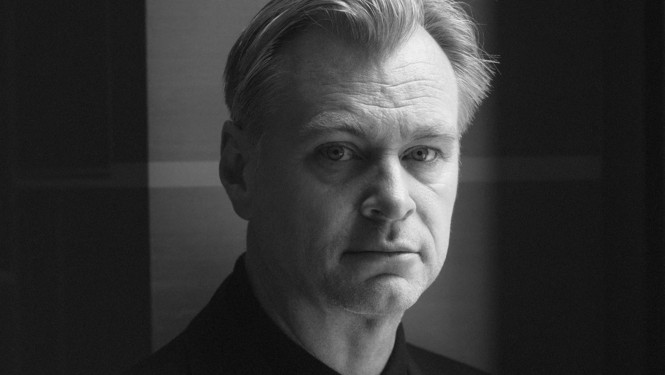Ben Affleck Is More Than a Dunkin’ Donuts Meme
Culture and entertainment musts from Gilad Edelman

This is an edition of The Atlantic Daily, a newsletter that guides you through the biggest stories of the day, helps you discover new ideas, and recommends the best in culture. Sign up for it here.
Welcome back to The Daily’s Sunday culture edition, in which one Atlantic writer or editor reveals what’s keeping them entertained. Today’s special guest is Gilad Edelman, a senior editor at The Atlantic who has written about the rising cost of English muffins (and the source of our economic discontent), the stubborn survival of crypto, and the case for weather being the best small-talk topic.
Gilad is a self-described “Letter Boxed head” and a staunch Ben Affleck defender (he recommends The Way Back and—curveball—Zack Snyder’s Justice League as some of the finer examples of Affleck’s talents). He also challenges anybody to find a more reliable actor than Seth Rogen—or to quote a good Oasis lyric.
First, here are three Sunday reads from The Atlantic:
- The cystic-fibrosis breakthrough that changed everything
- A looming disaster at the Zaporizhzhia Nuclear Power Plant
- April cover story: The golden age of American Jews is ending.
The Culture Survey: Gilad Edelman
An actor I would watch in anything: If I’m answering literally, it’s Seth Rogen. By this I don’t mean that he’s my favorite actor, or that he elevates poor material, or that I’ll watch something because he’s in it. But if I’m getting to choose only the actor and not the film, I’ll take my chances with Rogen, simply because he tends to avoid poor material in the first place. (Set aside The Green Hornet; every Hollywood star gets a terrible superhero movie.) If you don’t believe me, check out his IMDb page and pick at random a movie he’s in—you’ll probably be all right. (The Apple TV+ series Platonic, in which he stars opposite Rose Byrne as an immature man-child who must finally grow up—wow, what a twist!—is also highly amusing.)
If, however, I’m answering in the spirit of the question: Are we ready to talk about how underrated Ben Affleck is? Gigli is synonymous with bad cinema, and I won’t defend the embarrassing Air, which was an extended Nike advertisement masquerading as a film. But come on. The guy is phenomenal. He sets the standard for both the world-weary grimace and the cocky smirk. The scenes with Affleck as Bruce Wayne in the ridiculous Zack Snyder’s Justice League are, against the odds, totally watchable—good, even. Need a loathsome, smarmy prick? Affleck. (Mallrats, State of Play, Boiler Room.) Need a soulful, flawed hero wrestling with his demons? Affleck. (The Company Men, The Way Back.) I don’t see why you would need an autistic CPA who is a master of martial arts and close-quarters gunplay, but if you do: Affleck. (The Accountant: improbably entertaining.) He’s more than just the Dunkin’ Donuts meme! [Related: Ben Affleck gives the performance of his career.]
My favorite way of wasting time on my phone: Letter Boxed has never gotten as much love as its better-known siblings in the New York Times games app. I’m convinced this is because most people don’t know the right way to play. In Letter Boxed, you must spell words with letters arranged around the four sides of a square without ever using two letters on the same side consecutively. If you play by the stated rules, which typically ask you to solve by using all of the letters in four to six turns, it’s too easy. What the instructions don’t tell you is that the puzzle can always be solved in only two moves. Real Letter Boxed heads know that’s the real game. Warning: It’s hard! [Related: The New York Times’ new game is genius.]
A cultural product I loved as a teenager and still love, and something I loved but now dislike: Same answer for both: Oasis. When I was in high school, my friends and I would get together in someone’s basement, probably under the influence (sorry, Mom), and belt out Oasis songs at the top of our lungs. Noel Gallagher composed these simple, anthemic melodies and guitar licks, making heavy use of the pentatonic scale, that felt as if they had been etched in stone and handed down on Mount Sinai. His brother, Liam, the front man, sang in an unschooled, high-pitched Mancunian snarl that could be menacing and sweet at the same time.
Then I got a little older and noticed the lyrics. Woof. The typical Oasis lyric is a snatch of portentous, arbitrarily rhyming pseudo-poetry with no thematic connection to the lines before or after it. (Off the top of my head, I can think of multiple “pain / rain” rhymes.) We all know “And after all / You’re my wonderwall,” but that’s just scratching the surface. I want to give more examples, but I’m almost paralyzed by choice. Let’s just look at the opening verse of “Magic Pie,” from the album Be Here Now:
An extraordinary guy
Can never have an ordinary day
He might live the long goodbye
But that is not for me to say
I dig his friends, I dig his shoes
He is just a child with nothing to lose
But his mind, his mind
See what I mean? Once I noticed the vapidity of Oasis’s lyrics, I couldn’t un-notice them. And so, for a long time, Oasis became something I used to love. Then, early on in the pandemic, perhaps in search of musical comfort food, I started listening again. And boy, did Oasis hit the spot. It might just be my personal nostalgia, but I think there’s something about the music itself—unsubtle, grandiose, emotionally immediate—that evokes the feeling of adolescence even if you weren’t a teenager when you first heard it. Not coincidentally, two of their best songs are “Stay Young” and “Live Forever.” I still hate the lyrics, but I try not to let them bother me.
An author I will read anything by: Penelope Lively is up there with the finest prose stylists in the English language. Her novels, which tend to document the inner lives and domestic frustrations of middle-aged Brits coming to terms with life’s disappointments, can be claustrophobic and depressing. But not a word is out of place, and no writer conjures a character’s mental state more convincingly. Like some of my other favorite writers, Lively is obsessed with memory—how it shapes, haunts, and deceives us. If you’re unfamiliar, I recommend beginning with her deeply moving 1987 novel, Moon Tiger. [Related: “A maverick historian,” by Penelope Lively]
A poem, or line of poetry, that I return to: Do people really sit around reading poetry? I don’t, so I’ll cheat and do a song lyric. Since we’ve already trashed one of the worst lyricists (sorry, Noel), now let’s turn to the GOAT. Paul Simon didn’t exactly write “protest” music, but his “American Tune,” recorded on the 1973 album There Goes Rhymin’ Simon, captured the disillusionment of the Vietnam and Nixon era. It put to music the question of whether the country’s best days were behind it.
“Oh, and it’s all right, it’s all right, it’s all right / You can’t be forever blessed / Still, tomorrow’s going to be another working day / And I’m trying to get some rest,” he sang. Sometimes I take comfort in those lines: Things looked pretty bad 50 years ago, yet America keeps muddling through. At other times, I hear them as a warning. You really can’t be blessed forever.
The Week Ahead
- The Academy Awards, hosted by Jimmy Kimmel and featuring a strong lineup of nominees (airs tonight at 7 p.m. ET on ABC)
- Manhunt, a limited series about the hunt for John Wilkes Booth after his assassination of Abraham Lincoln (premieres Friday on Apple TV+)
- Green Frog, by Gina Chung, a fantastical short-story collection that explores survival and Korean American womanhood (out Tuesday)
Essay
Christopher Nolan on the Promise and Peril of Technology
By Ross Andersen
(From 2023)
By the time I sat down with Christopher Nolan in his posh hotel suite not far from the White House, I guessed that he was tired of Washington, D.C. The day before, he’d toured the Oval Office and had lunch on Capitol Hill. Later that night, I’d watched him receive an award from the Federation for American Scientists, an organization that counts Robert Oppenheimer, the subject of Nolan’s most recent film, among its founders …
The award was sitting on an end table next to Nolan, who was dressed in brown slacks, a gray vest, and a navy suit jacket—his Anglo-formality undimmed by decades spent living in Los Angeles. “It’s heavy, and glass, and good for self-defense,” he said of the award, while filling his teacup. I suggested that it may not be the last trophy he receives this winter …
“Don’t jinx me,” he said.
More in Culture
- Here’s who will win at the 2024 Oscars.
- If Oppenheimer wins Best Picture, this will be why.
- What to read ahead of the Oscars
- A subtle shift shaking up sibling relationships
- Dad culture has nothing to do with parenting.
- Shōgun is challenging Hollywood’s most revered stereotype.
- The haunting of modern pop music
- Seven books that explain how Hollywood actually works
- A kind of timeless jazz masterpiece
- The New York Times’ new game is genius.
- The tyranny of English
- It’s time to give up on email.
Catch Up on The Atlantic
- The most unusual State of the Union in living memory
- The Supreme Court is not up to the challenge.
- Haiti is in crisis.
Photo Album
These images—which trace the 1924 Summer Olympics, prohibition in the United States, the rise of radio broadcasts, and more—show life exactly one century ago.
Explore all of our newsletters.
When you buy a book using a link in this newsletter, we receive a commission. Thank you for supporting The Atlantic.
What's Your Reaction?




















